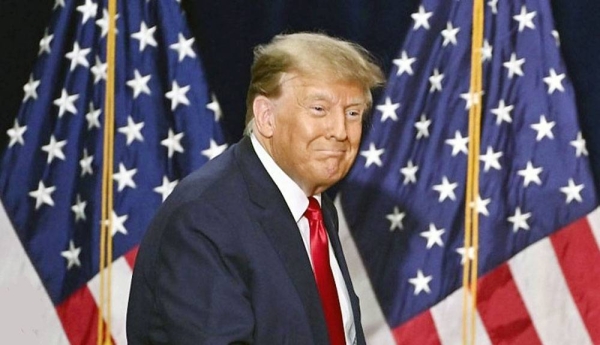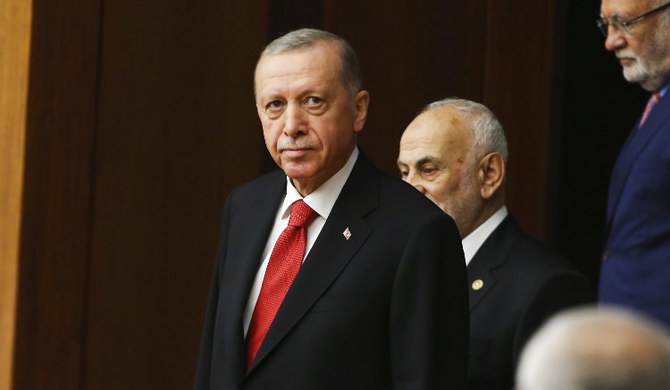
Turkish President Recep Tayyip Erdogan was one of the first international leaders to congratulate Donald Trump on his victory in Tuesday’s US presidential election, expressing hope that “Turkish-US relations grow stronger and that regional and global crises and wars, especially the one in Palestine and the Russia-Ukraine war, will come to an end.” However, Turkiye is concerned that Israel’s aggressive actions in the region may intensify following this election.
During the US election campaign, Ankara maintained a cautious wait-and-see approach, refraining from publicly endorsing either candidate. Now that Trump is once again the president, it seems that two approaches are prevailing in Ankara’s corridors of power.
First is that Turkish policymakers believe Trump and Erdogan share a similar approach to conducting diplomacy and handling complex issues. Despite their ups and downs and turbulent periods, the two leaders had an unusually close and personalized relationship, characterized by frequent phone calls and meetings.
Second is that, at the same time, there is a lack of trust in Ankara due to Trump’s previous presidency, which promised to support Turkish interests in the region but ultimately failed to produce significant results. Moreover, his first term was marked by some extremely tense periods in Turkish-American relations, which saw the imposition of economic sanctions on Turkiye, pushing its economy into an even more difficult situation. Most importantly, Trump did little to change the policies set by the previous administration that contributed to the issues with Turkiye.
Relations between Ankara and Washington have been on a steady downward trajectory for some time. Although Erdogan and Trump developed a personalized relationship, their approach could not overcome the structural differences that have long undermined this relationship. Moreover, President Joe Biden failed to reset the ties due to either his unwillingness or an inability to engage, while relations were further strained by the Russia-Ukraine conflict and the Gaza war.
Although tensions eased earlier this year, when Ankara lifted its veto on Sweden’s bid to join NATO and Washington approved the sale of F-16 warplanes to Turkiye, momentum has since stalled. The Turkish F-16 order has been scaled back and the gap between Erdogan and Biden has widened, largely due to their divergent views on Israel’s war on Gaza.
Despite their ups and downs, the two leaders had an unusually close and personalized relationship
Sinem Cengiz
During Biden’s tenure, Erdogan has not visited the US and the American president has not visited Turkiye. However, during Trump’s presidency, Erdogan visited the White House twice, in 2017 and 2019, when steps were taken to strengthen relations.
Despite the personal diplomacy between Trump and Erdogan, little is expected to change in the form of Turkish-American relations under the former’s upcoming second term. These ties have been tested by serious crises, after each of which experts claim that the relationship has reached rock bottom. But these two NATO allies cannot afford to manage their disagreements with a hostile approach. For the US, Turkiye cannot be categorized as a foe due to its NATO engagement and alliance with Washington. Therefore, it is better and more realistic to compartmentalize the areas of agreement and disagreement.
The roots of the current disagreements trace back to the final years of the Obama administration, when the US decided to support the Syrian-Kurdish YPG, a militia with close ties to the PKK, which is designated as a terrorist organization by Turkiye. Although, during Trump’s presidency, Turkiye was given the green light to conduct a military offensive in northern Syria against the YPG, Washington did not significantly alter its stance on the militia group.
Furthermore, as tensions in northern Syria escalated, Trump sent a letter to Erdogan that violated diplomatic protocol and which was later leaked to the press. The letter created a significant backlash in Ankara. Amid this growing tension in Turkish-American relations, Turkiye found common ground with Russia, as Ankara and Moscow made agreements to cooperate on Syria, including through the Astana peace process in 2017, while Turkiye also negotiated the purchase of the Russian S-400 missile defense system. However, under Trump 2.0, Washington may adopt a stance on Syria that is more favorable to Turkiye, as the dynamics there and throughout the region have significantly changed since Trump left the White House in 2021.
Clearly, Turkish-American relations are already burdened with difficulties and any additional unfavorable developments would make it even more challenging for the two states to navigate the obstacles. Moreover, the second Trump administration will come with its own set of challenges and uncertainties due to various disagreements over security and regional issues.
Even if Erdogan and Trump are able to communicate directly and frequently, the course of Turkish-American relations will largely depend on how the wars in Gaza and Ukraine unfold. Trump’s position on regional issues will undoubtedly challenge Turkiye’s delicate balancing act between the West and Russia, as well as its stance on Israel’s war in Gaza and Turkish policies in Syria.
These two NATO allies cannot afford to manage their disagreements with a hostile approach
Sinem Cengiz
During Trump’s first term, he decided to move the US Embassy from Tel Aviv to Jerusalem, provoking strong opposition from Turkiye. Given Trump’s uncompromising approach toward Israel and Erdogan’s firm position in standing in solidarity with the Palestinians, this issue is likely to negatively affect the course of their relations at times.
However, if, unlike the Biden administration, Trump’s second administration keeps open the channels of communication with Ankara, while acknowledging the changing dynamics at the regional and international levels and understanding the importance of Turkiye’s position in regional issues, it could prove beneficial for both sides.
In the end, while Trump’s return may offer some hope for better dialogue with Turkiye, the long-standing structural challenges in Turkish-American relations will continue to test the course of their complex relationship.
• Sinem Cengiz is a Turkish political analyst who specializes in Turkiye’s relations with the Middle East. X: @SinemCngz
Disclaimer: Views expressed by writers in this section are their own and do not necessarily reflect Arab News" point of view












